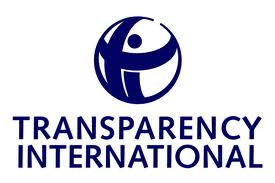 In three steps, the European Council can end financial secrecy and take decisive action on corruption and tax evasion
In three steps, the European Council can end financial secrecy and take decisive action on corruption and tax evasion
EU leaders meeting tomorrow have an opportunity to end the financial secrecy that facilitates corruption and tax evasion. As many cases of proven corruption have shown, anonymous shell companies and other opaque legal structures based in secrecy jurisdictions are the favoured vehicles to hide illicit financial gain. Finding out who ultimately profits from these legal structures – the question of beneficial ownership – is central to efforts to close down this avenue for ill-gotten gain.
Building on recent international developments, EU Member States can help stop the flow of corrupt funds with three simple steps:
- Unanimously agree to the proposed reforms of the EU Savings Tax Directive [1]. The proposed reforms would address major loopholes in the legislation, for example by obliging trustees and directors of shell companies to collect and transmit information on the beneficial owners of these legal entities.
- Agree that automatic exchange of financial information should be the global ‘gold standard’. Corruption and tax evasion are not just problems in the EU. Developing countries suffered $586 billion per year in illicit outflows in the first decade of this century [2]. EU leaders should recognise their obligations to citizens in the developing world by committing to a global, multilateral system for the automatic exchange of financial information, based on the model that 10 EU countries have agreed to pilot [3]. EU legislation should also reflect this commitment.
- Agree to mandatory public registers of beneficial owners. To help banks and other financial institutions do their work properly, EU leaders should agree to revisions of EU anti-money laundering legislation that would require Member States to establish and update public registers of beneficial owners of companies and other legal entities. Today, information on beneficial ownership is provided by business registers in only four EU Member States (Estonia, Italy, Romania & Slovenia).
“At a time when citizens are going through the toughest economic crisis in years, EU leaders have an opportunity to clamp down on illicit financial flows”, said Carl Dolan, Senior EU Policy Officer at the Transparency International EU Office. “Effective action has been prevented before by Member States putting narrow national interests before doing the right thing. It is time to end the squabbling over perceived competitive advantage and recognise that by facilitating corruption everyone loses”.
Transparency International has also demanded action from G8 and G20 governments against financial secrecy in order to prevent corruption and illicit financial flows.
Note:
[1] The 2003 Savings Tax Directive requires EU Member States (as well as Andorra, Liechtenstein, Monaco, San Marino and Switzerland) to automatically exchange information on bank accounts held by residents of these countries. Exemptions were granted to Belgium, Luxembourg and Austria. Proposedamendments to the Directive would require banks and other financial institutions to establish whether the beneficial owner of certain entities or legal arrangements established in secrecy jurisdictions are EU residents or residents of the participating countries. It would also require legal entities such as companies and trusts to automatically transmit information about their beneficial owners to competent authorities in EU member states. The amendments also address loopholes relating to the beneficial owners of certain financial instruments such as investment funds.
[2] A report by Global Financial Integrity has estimated that developing countries lost at least $586 billion per year in illicit outflows between 2001 and 2010.
[3] In April 2013, Belgium, Czech Republic, France, Germany, Italy, Netherlands, Poland, Romania, Spain and UK agreed to a pilot multinational initiative for reciprocal exchange of tax information. The pilot initiative will be based on a model agreed with the U.S. government following the passage of the Foreign Account Tax Compliance Act (FATCA). FATCA requires non-US financial institutions to report directly to the Inland Revenue Service (IRS) information about financial accounts held by U.S. taxpayers, or held by foreign entities in which U.S. taxpayers hold a substantial ownership interest.
